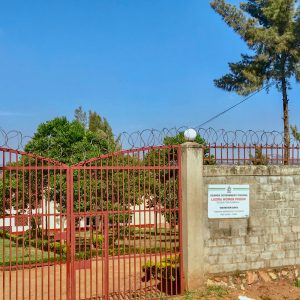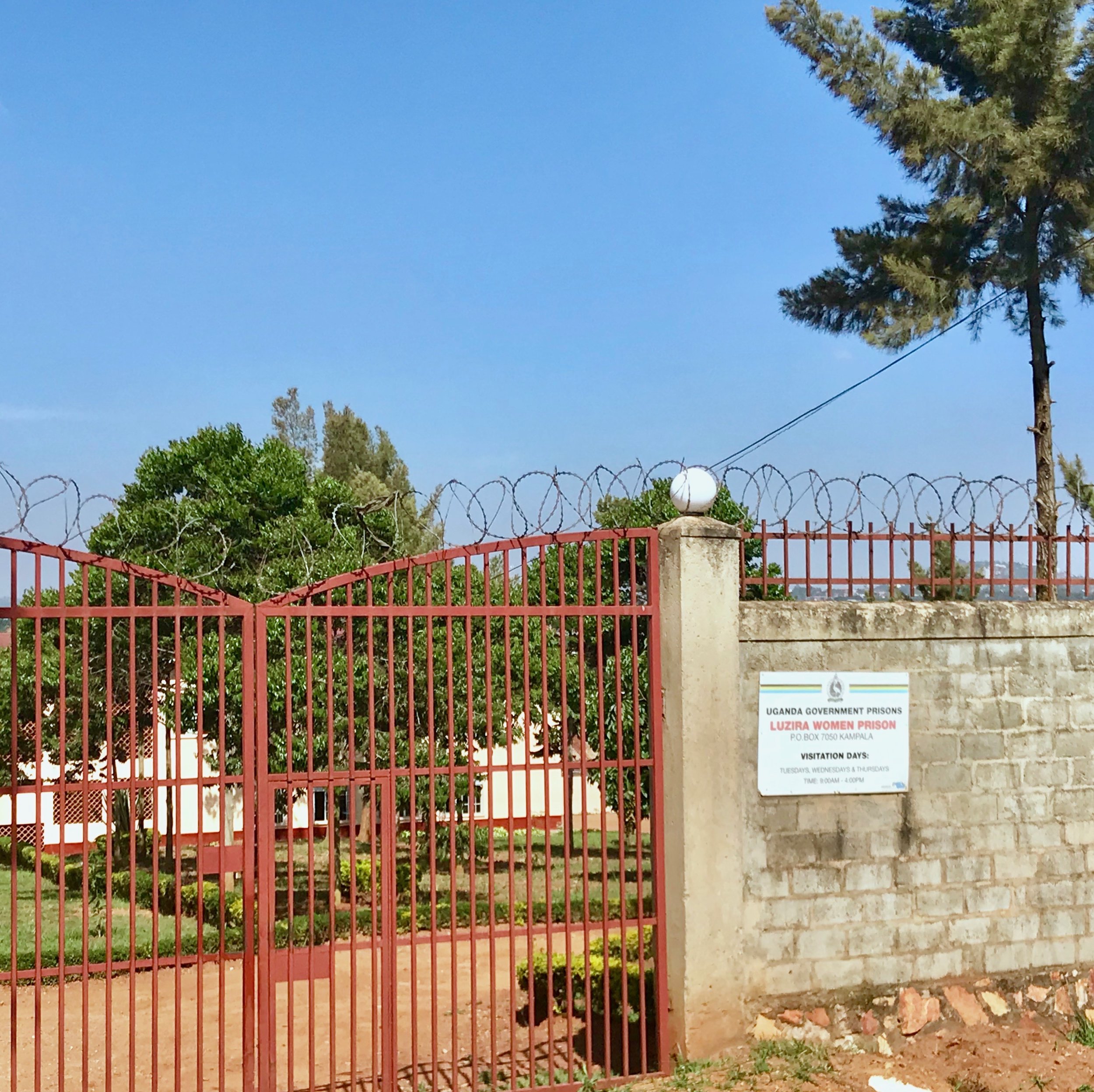The infamous Luzira prison complex is beautifully located on one of Kampala’s hills. From the manager’s office in the women’s section the views are stunning. The officer in charge (OC) explains that she has a master’s degree in human rights and appears to run the prison with a firm but flexible hand, with concern for the people entrusted her – including the forty or so children who stay in the prison complex with their incarcerated mothers.
We are here to see Stella Nyanzi. The feisty and articulate academic and activist was arrested on 2 November 2018 on charges of cyber harassment and offensive communication after posting a poem to President Museveni on her Facebook page on the occasion of his birthday on 16th September. The poem was found to contain offensive and vulgar language insulting the president and his late mother. Nyanzi on the other hand argues that this is urgent political criticism at a time when democracy in Uganda is being severely undermined.
Stella, who has to sit on the floor while receiving her visitors in the OC’s office, sees herself as an intellectual in the Ugandan tradition of ‘radical rudeness’, which was devised and effectively used by critics of the colonial regime in the 1940s. She wants to awaken people and bother those abusing their power – be a constant irritant, a stone in the shoe that eventually may trigger action. This is also why she has refused to be released on bail, which would allow the government to endlessly delay the case against her. Rather she has chosen to remain in custody and use her bodily presence there to demand that the president personally come to court to testify against her.
This is not the first time Stella Nyanzi engages in body politics. Her effective use of bodily metaphors – including famously calling the president a pair of buttocks – contributes to her massive following on social media but has also repeatedly landed her in trouble. As has her engagement for school girls’ right to menstrual care enabling them to go to school during their period. In April 2017, she was arrested for criticizing – again in bodily terms – the president and the First Lady, who doubles as the Minister of Education for going back on their promises of providing sanitary pads to schoolgirls. She has also been suspended from her position at Makerere University’s Institute for Social Research – staging a nude protest when she was locked out of her office. The costs are high. Illness caused by incarceration. Burdens on her three young children. But this is also for them. Their right to express themselves freely is on the line.
Stella explains how the international support structure for human rights defenders is ill suited to her unconventional, and more effective modes of activism: Funders will line up, ready to pay bail and engage human rights lawyers – but no one is willing to support the costs of a criminal lawyer to take her case though the court system, thus securing a more long-term focus and possibly even a pro-freedom of speech decision. Donors seek to thread a careful and polite line of support for activists without offending governments. This detracts from the agency of local activists and makes activism impotent.
Siri Gloppen
Professor of Comparative Politics, University of Bergen
Director, Centre for Law & Social Transformation



